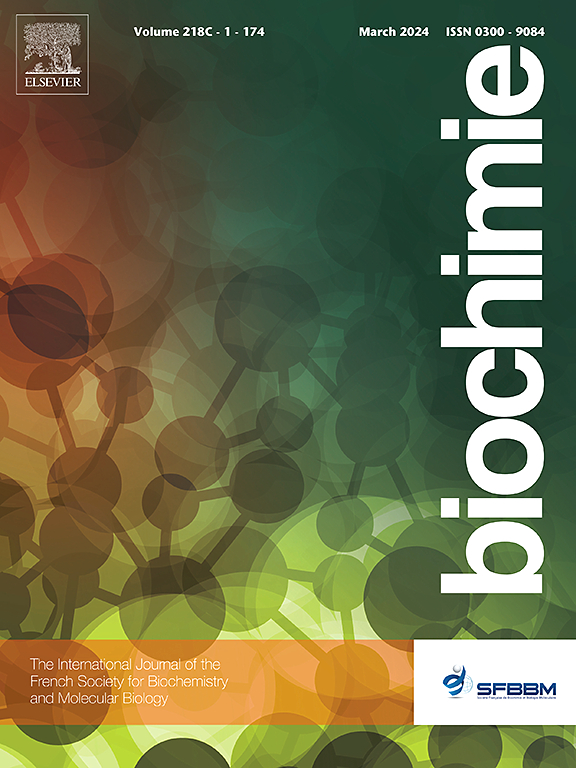Optimized high-yield expression of envelope glycoprotein domain III from dengue virus serotypes 1 to 4
IF 3.3
3区 生物学
Q2 BIOCHEMISTRY & MOLECULAR BIOLOGY
引用次数: 0
Abstract
Dengue virus (DENV) envelope glycoprotein Domain III (EDIII) is critical for viral entry, highly immunogenic, and induces robust neutralizing antibody response. It is a prominent candidate for designing subunit-based vaccines and can also be harnessed as an antigenic bait for isolation of neutralizing human mAbs. Here, we describe an optimized method for high-yield expression of recombinant domain EDIII protein from DENV serotypes 1 to 4 in different Escherichia coli (E. coli) expression strains. The DENV EDIII proteins show differential expression patterns in tested E. coli expression strains. The structural integrity of the purified and refolded proteins is further validated using the Circular Dichroism (CD) spectroscopy and Fourier Transform Infrared (FTIR) spectroscopic analysis. The functional validation of the purified refolded DENV EDIII proteins through Enzyme-linked Immunosorbent Assay (ELISA) and co-immunoprecipitation (Co-IP) exhibits efficient binding with a well-characterized humanized neutralizing mAb 513. Further, we compared the potency of purified EDIII in blocking viral through competitive inhibition assay. Our study highlights that a universal expression system may not be an ideal approach for all DENV EDIII protein expression.
登革病毒血清型1 ~ 4包膜糖蛋白结构域III高产表达优化。
登革病毒(DENV)包膜糖蛋白结构域III (EDIII)对病毒进入至关重要,具有高度的免疫原性,并诱导强大的中和抗体反应。它是设计亚单位疫苗的重要候选物,也可以用作分离中和性人单克隆抗体的抗原诱饵。本文描述了一种在不同大肠杆菌表达菌株中高效表达DENV血清型1 ~ 4重组结构域EDIII蛋白的优化方法。DENV EDIII蛋白在大肠杆菌表达菌株中表现出不同的表达模式。利用圆二色(CD)光谱和傅里叶变换红外(FTIR)光谱分析进一步验证了纯化和再折叠蛋白的结构完整性。通过酶联免疫吸附试验(ELISA)和共免疫沉淀(Co-IP),纯化的再折叠DENV EDIII蛋白的功能验证显示出与特性良好的人源化中和mAb 513有效结合。此外,我们通过竞争抑制实验比较了纯化的EDIII对病毒的阻断效力。我们的研究强调,通用表达系统可能不是所有DENV EDIII蛋白表达的理想方法。
本文章由计算机程序翻译,如有差异,请以英文原文为准。
求助全文
约1分钟内获得全文
求助全文
来源期刊

Biochimie
生物-生化与分子生物学
CiteScore
7.20
自引率
2.60%
发文量
219
审稿时长
40 days
期刊介绍:
Biochimie publishes original research articles, short communications, review articles, graphical reviews, mini-reviews, and hypotheses in the broad areas of biology, including biochemistry, enzymology, molecular and cell biology, metabolic regulation, genetics, immunology, microbiology, structural biology, genomics, proteomics, and molecular mechanisms of disease. Biochimie publishes exclusively in English.
Articles are subject to peer review, and must satisfy the requirements of originality, high scientific integrity and general interest to a broad range of readers. Submissions that are judged to be of sound scientific and technical quality but do not fully satisfy the requirements for publication in Biochimie may benefit from a transfer service to a more suitable journal within the same subject area.
 求助内容:
求助内容: 应助结果提醒方式:
应助结果提醒方式:


